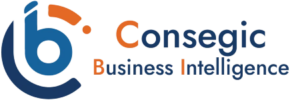Introduction
Ensuring the quality of software products is paramount. Hence, to meet the growing demand for skilled software testers, the International Software Testing Qualifications Board (ISTQB) offers a comprehensive certification program. While a lot of people are familiar with the basics of ISTQB certification. But only a few know the strategies for navigating the journey beyond the basics. The ISTQB Certification program is structured into different levels, each responsible for specific skill sets and expertise. The foundational level is the ISTQB Foundation Level, followed by Advanced Level, and Expert Level.
Different Levels of ISTQB Certification
Foundation Level: Building the Bedrock
The Foundation Level is the entry point for many aspiring software testers. It covers the fundamental concepts of software testing, terminology, and key processes. So, navigating this level successfully requires a solid understanding of testing principles, types of testing, and the software development lifecycle. While preparing for the Foundation Level, it is crucial to use diverse learning resources such as textbooks, online courses, and practice exams. Further, practice is key, as it helps in familiarizing oneself with the exam format and reinforces the learned concepts.
Advanced Level: Going Beyond the Basics
Once the Foundation Level is conquered, the Advanced Level beckons those aiming to deepen their testing expertise. This level is divided into three modules: Test Manager, Test Analyst, and Technical Test Analyst. Hence, each module explores specific aspects of testing, such as test management, test analysis, and technical testing. Therefore, navigating the Advanced Level demands a more hands-on approach. Moreover, practical experience in real-world testing scenarios is invaluable. Additionally, participants should engage in discussions, workshops, and peer reviews to gain insights from experienced testers. Hence, using these insights ensures a more holistic understanding of advanced testing concepts.
Expert Level: Mastering the Art
The Expert Level represents the peak of the ISTQB certification pyramid. Therefore, attaining Expert Level certification requires a profound understanding of testing methodologies, and strategies, and a proven track record of applying these in complex testing environments. Moreover, the Expert Level comprises modules such as Test Management, Improving the Test Process, and Test Automation Engineering. Hence, embarking on the Expert Level journey involves a commitment to continuous learning and professional growth. So, this level is not just about passing exams. Moreover, it is about demonstrating mastery through practical applications. Also, building a portfolio of successful testing projects and contributing to the testing community can significantly enhance the Expert Level journey.
Specialized Modules: Niche Expertise
Apart from the core levels, ISTQB offers specialized modules for those seeking niche expertise. So, these modules focus on specific aspects of testing, such as Agile testing, Security testing, and Performance testing. Hence, navigating these modules requires a targeted approach, with practitioners gaining hands-on experience in the chosen niche.
Moreover, specialized modules often involve collaboration with industry experts and stay updated on the latest trends in the chosen domain. Therefore, engaging in relevant forums, conferences, and networking events can provide valuable insights and opportunities for knowledge exchange.
Practical Tips for Success
a. Create a Study Plan: Develop a structured study plan that aligns with your goals and commitments. Furthermore, allocate dedicated time for learning, practice exams, and hands-on projects.
b. Use Diverse Learning Resources: Explore a variety of learning resources, including textbooks, online courses, and practical workshops. Because different perspectives can enhance your understanding of complex topics.
c. Join the Testing Community: Engage with the broader testing community through forums, social media, and local meetups. Moreover, networking with fellow testers provides a platform for knowledge exchange and professional growth.
d. Stay Updated: The field of software testing is dynamic, with new tools and methodologies emerging regularly. So, stay informed about the latest trends and advancements through continuous learning and professional development.
e. Practice, Practice, Practice: Practical application is key to mastering testing concepts. Participate in real-world testing projects, contribute to open-source initiatives, and seek opportunities to apply your knowledge in diverse scenarios.
Conclusion
Navigating the ISTQB certification journey goes beyond memorizing concepts for exams. It is a dynamic process of continuous learning, practical application, and community engagement. Whether you are at the Foundation, Advanced, or Expert Level, or pursuing specialized modules, you have to bear the istqb certification cost in india. Therefore, adopting a holistic approach will not only lead to certification success but also contribute to your growth as a proficient software tester in the ever-evolving IT landscape.













